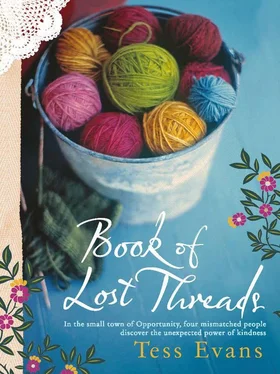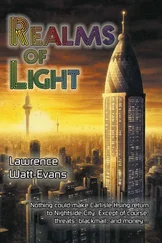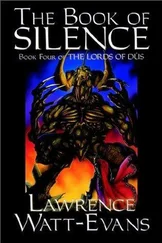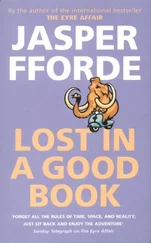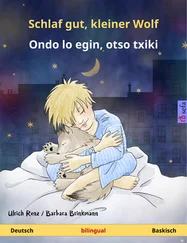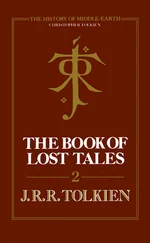‘I could help you, and visit Linsey at the same time,’ she said.
When he invited Finn, he was startled at the response. The other man’s face rapidly registered shock and shame. Then confusion.
Finn’s last visit had been to seek out Amber-Lee’s grave, but the sight of the raw mound on the fringes of the cemetery had been more than he could bear. Not far away, elaborate tombstones and well-tended burial plots turned their backs on the graves of the poor and nameless. He had stood beside the mound and promised he’d be back, that he’d rescue her from this awful obscurity. But although he never forgot her, he hadn’t kept his promise. And with this new opportunity, failed to do so again.
‘I just can’t,’ he mumbled in distress. ‘Maybe another time.’
Leaving the small car park that adjoined the main gates, Sandy and Moss went into the gothic-style bluestone building that housed the cemetery’s administration. The young woman at reception was helpful, giving them a map on which she marked the various sites where the infant graves could be found.
‘You’ll find some commemorative plaques,’ she said, ‘but very few compared to the thousands buried there.’
As they were about to leave, Moss asked on impulse, ‘Where are the public graves?’
‘You won’t find those any more. They used to be around the perimeter fence, here and here.’ She circled the locations apologetically. ‘There’s no marker or anything. The plots have been reclaimed.’
Moss ignored Sandy’s raised eyebrows and scanned the map with feigned concentration. She felt sick at heart to think of the total annihilation suffered by the inhabitants of those graves.
‘Come on, love,’ said Sandy. ‘Let’s do what we came here to do.’
The cemetery was bristling with tombstones, which grew from the earth like rows of grey teeth, some carious and crooked with age, others straight and perfectly aligned. The graves came one upon another in tight formation, with their crosses and angels, their stars of David, their Chinese characters; some with photographs, some with plastic flowers, a few with fresh blooms. There were tall monuments crowned with kneeling angels, arms crossed and heads bowed. Other angels held a trumpet to their stone lips. Silent trumpets: it was not yet time to waken the dead.
They passed the Elvis memorial beside which sixty-year-olds in tight T-shirts and leather jackets posed for photographs. They passed the grand tombs of Melbourne’s forefathers, and graves of the humble whose names were all but obliterated. They walked in silence until Sandy, who had the map, indicated that they should leave the main road and take a narrow path to the right. There were no signposts, and it was almost by chance that they came across the place they’d been seeking.
It was a small space under two peppercorn trees. There had possibly once been a lawn, but now a few lone weeds struggled in the hard soil. There was a wooden bench and four stones studded with brass plaques. The largest stone was inscribed with the words:
Never held. Never seen.
But never forgotten.
Cherished but not cradled.
The other plaques had names and dates and expressions of loss all the more poignant for their simplicity. We had a home ready for you , Moss read on one unadorned plaque. There were a few weathered toys, and two bunches of fresh flowers that had been placed there quite recently. As there were no dates after 1972, these fresh flowers were a testament to the longevity of grief. Moss could see the elderly mothers and fathers after forty, fifty years, still mourning their loss, visiting the baby they had never seen. Most of the plaques had no name, just dates: the birth day and death day of anonymous children. She sat down on the seat with Sandy and looked at the colourless sky, shivering as the cold wind moved through the trailing branches of the peppercorn trees.
‘There’s not much more we can do here,’ said Sandy at last, heaving himself up with a sigh. Moss took some blooms from the flowers she had brought for Linsey and placed them gently beside the nearest memorial. Their warm yellow contrasted with the cold grey stone, creating a momentary illusion of sunlight.
They retraced their steps to the entrance and stopped at the row of walls where ashes were immured. Moss checked a piece of paper and found her way to Linsey’s commemorative plaque. It was the first time she’d visited since the memorial service, and she read the inscription with dismay. In this last tribute to the life of her mother, she was not even mentioned. Felicity couldn’t have chosen a better way to hurt her.
Moss arranged her flowers with numb fingers. It’s no more than I deserve , she thought. But I did love you, Mother Linsey. You have to understand that I just couldn’t take the bullying . She paused mid-thought as realisation dawned. I guess you faced your share of bullies and bigots too. Maybe you understood more than I imagined.
Moss glanced back at Sandy in mute apology for the delay.
‘Take all the time you need, love,’ he said.
Moss turned back to the wall. ‘I’m glad I sang for you, Mother Linsey,’ she whispered. ‘If it weren’t for you, I would never have found the discipline.’ She paused. All at once, Felicity’s words came back to her. Her exact words. Linsey’s last request was that you sing at her funeral. At the time, Moss was still in shock and had not heeded the significance of these words. Linsey had wanted her to sing. Linsey had known she would sing. Had her mother sent her a message through Felicity? And if she had, did it mean that Linsey had forgiven her?
Moss spread her palm over the plaque. The cold metal resisted her touch.
‘I’m sorry, Mother Linsey. I’m so sorry.’
‘Come on, love,’ said Sandy gruffly. ‘It’s okay.’ But reminded of his mother’s epitaph, he knew it wasn’t okay at all.
Leaving the cemetery, they drove a short distance to a café, where they ordered coffee and sandwiches.
‘I have the phone number of the organisation that set up the memorial,’ Sandy told Moss. ‘We don’t know if the site we saw is where Aunt Lily’s baby was buried or if it was one of the others. This group might be able to help us. There’s no point in getting the poor old thing’s hopes up.’ In fact, Sandy had another source of information but chose not to tell Moss. It wasn’t his secret to share.
As soon as he returned home, Sandy went to what had been his mother’s sewing room. He stopped in the doorway and looked at the mess. Rosie had been fond of sewing, and when she died, her fabrics, cottons and notions had been bundled into two plastic garbage bags for donation to the charity shop. Neither Sandy nor his father had bothered to deliver them, and the bags now shared the space with boxes of magazines, old ledgers, books and sundry household items too good to throw out but not good enough to use. Rosie’s sewing machine was still there. He remembered how happy she’d been to trade her old Singer treadle for an electric model. Now it sat there, its bland plastic cover casting a dumb reproach.
I should’ve given Mum’s sewing machine away , Sandy thought. She’d call this a wicked waste.
But it was not the sewing machine that he’d come for. He went to the window seat and, sneezing violently, threw the dusty cushions onto the floor so that he could access the lid. He took a screwdriver from his pocket. The screws had rusted over the years, but they yielded one by one. He wheezed a little as he stood up and stretched his back. Even with good intentions, he felt reluctant to expose his mother’s secrets.
Children living in a violent or conflicted household learn invisibility at a very early age. Sandy Sandilands was no exception, and he managed to move shadow-like through his childhood, avoiding any unnecessary contact with his parents. He must have been about eight when he first saw his mother opening this window seat and placing a book inside before screwing down the lid. He remembered his main feeling at the time was surprise to see that his mother could use a screwdriver. The Major liked to ensure that she was reliant upon him for everything. He sensed that this was a secret, and was guiltily glad to know that his father was out on the tractor. He slipped away, and thought no more about it until some years later when he came upon his mother writing at her small sewing table. She looked up with a start, protecting the book with her hands. There was fear in her eyes. She didn’t need to speak; Sandy understood. ‘Don’t worry, Mum. I won’t tell.’ And he never did.
Читать дальше
